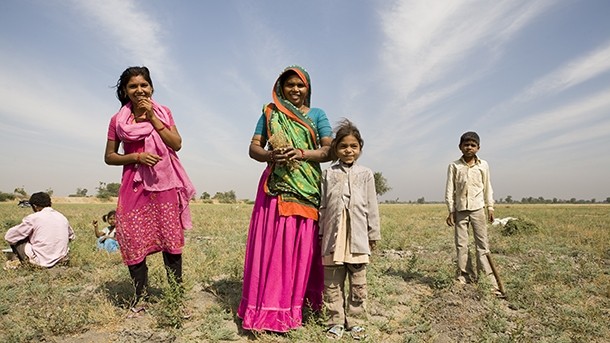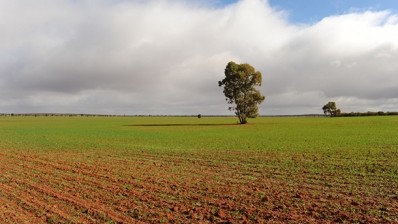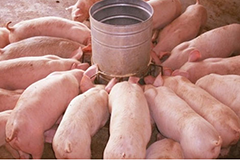State of food and agriculture
Crucial to food security, family farms need greater support

Family farms produce about 80% of the world's food. Their prevalence and output mean they "are vital to the solution of the hunger problem" afflicting more than 800m people, FAO director-general José Graziano da Silva wrote in the introduction to the State of Food and Agriculture 2014 (SOFA) report.
Such farms are also the custodians of about 75% of all agricultural resources in the world, and are therefore key to improved ecological and resource sustainability. They are also among the most vulnerable to the effects of resource depletion and climate change.
Family struggles
While evidence shows impressive yields on land managed by family farmers, many smaller farms are unable to produce enough to provide decent livelihoods for the families.
This type of farming is thus faced with a threefold challenge: yield growth to meet the world's need for food security and better nutrition; environmental sustainability to protect the planet and to secure their own productive capacity; and productivity growth and livelihood diversification to lift themselves out of poverty and hunger.
According to the SOFA report, these challenges mean that family farmers must innovate.
"In all cases, family farmers need to be protagonists of innovation as only this way can they take ownership of the process and ensure that the solutions offered respond to their needs," Graziano da Silva said. "Family farming is a key component of the healthy food systems we need to lead healthier lives."
The report calls for the public sector, working with farmers, civil society organisations and the private sector, to improve innovation systems for agriculture. Agricultural innovation systems include all the institutions and actors that support farmers in developing and adopting better ways of working in today's increasingly complex world.
Innovation capacity must be promoted at various levels, with incentives for farmers, researchers, advisory service providers and integrated value chains to interact and create networks and partnerships to share information, SOFA said.
Policy makers must also consider the diversity of family farms in terms of size, technologies used, and integration into markets, as well as their ecological and socio-economic settings.
This diversity means that farmers need different things from an innovation system. Still, all farms need better governance, macroeconomic stability, physical and institutional market infrastructure, education as well as basic agricultural research, according to SOFA.
Public investment in agricultural research, as well as extension and advisory services—which should be designed to be more participatory—must be increased to emphasise sustainable intensification and closing the yield and labour productivity gaps characterising farm sectors in many developing nations.
Although agricultural research by private companies is increasing, public-sector investment remains indispensable to ensure research in areas of little interest to the private sector, such as basic research, orphan crops or sustainable production practices. Such research constitutes a public good with many potential beneficiaries.
Family farms are vital
The FAO report offers a rich set of new details about family farms. Most family farms are small, with 84% of the world's farms less than two hectares in size. However, farm sizes vary widely; indeed, farms larger than 50 hectares—including many family farms—occupy two-thirds of the world's agricultural land.
In many high-income and upper-middle-income countries, large farms, responsible for most agricultural production, account for most farm land. But in most low- and lower-middle-income countries, small and medium-sized farms occupy most farm land and produce most of the food.
Small farms produce a higher share of the world's food relative to the share of land they use, as they tend to have higher yields than larger farms within the same countries and agro-ecological settings.
However, the higher productivity of land on family farms involves lower labour productivity, which perpetuates poverty and hinders development. Much of the world's food production involves unpaid labour by family members.
The report emphasises that it is imperative to boost output per worker, especially in low-income countries, in order to lift farm incomes and expand rural economic welfare in general.
Currently, farm sizes are becoming smaller and smaller in most developing countries, where many smallholder farm households derive the bulk of their income from off-farm activities.
Policies should aim to increase access to inputs such as seeds and fertilisers, as well as to markets and credit, according to SOFA.
Effective and inclusive producer organisations can support innovation by members, helping them gain access to markets, and facilitating linkages with others in the innovation system, besides ensuring that family farms have a voice in policy making, the report highlighted.
To encourage family farmers to invest in sustainable agricultural practices, which often have high start-up costs and long pay-off periods, authorities should seek to provide an enabling environment for innovation.
Policies meant to catalyse innovation will need to go beyond technology transfer, according to SOFA. They must also be inclusive and tailored to local contexts, so that farmers have ownership of innovation, and take gender and intergenerational issues into consideration, involving youth in the future of the agricultural sector.











